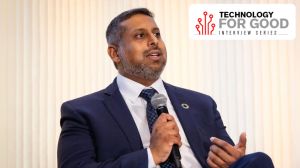Boy next door till 7/7, then a suicide bomber
He was the British-born son of a Pakistani merchant who made good in that most British of endeavours: the fish-and-chip business. But at som...

He was the British-born son of a Pakistani merchant who made good in that most British of endeavours: the fish-and-chip business. But at some point, Shahzad Tanweer, a suspected suicide bomber in a blast that tore apart an Underground carriage in London last week, became consumed by the rage of a new and restive generation of Islamic extremists that has swept across Europe.
Neighbours described Tanweer, said to be 22 or 23, as a boy who loved sports: playing soccer in the street or in the park down the road, riding in his car and lifting weights and working out at a local community centre. Friends said he had graduated from the University of Leeds with a degree in sports and wasn’t overtly religious.
A young woman who said that she had known Tanweer and his sisters all her life found it hard to reconcile the youth she knew with the man who police believe blew himself up on a crowded train. Asked whether she thought he might have committed such an act, the woman, who wouldn’t give her name, said, ‘‘No, I don’t think, but then again…No, I don’t think so.’’
But as they watched soldiers, police and journalists invade their streets, other young neighbors seethed. They defended Tanweer as a good man who would not have done such a thing. But some came close to justifying violence in response to a perceived assault on Muslims the world over. ‘‘You see Palestinian kids getting killed on the street in your living room, maybe you’re going to flip,’’ said a young man who identified himself only as Shakur, 27. ‘‘It is not a matter of al-Qaida people doing it — the people are doing it themselves.’’
The attack caught British anti-terror officials off-guard, but the profile and provenance of the suspects did not. In recent years, British security services have grown increasingly worried about a unique homegrown threat, anti-terror officials say: second- and third-generation youths from the Pakistani immigrant communities that dominate Britain’s Muslim population. In addition to the notorious Arab ideologues and jihadis who brazenly made London their headquarters for years, British intelligence have stepped up efforts to monitor the cities of Yorkshire and other northern areas where they saw virulent extremism taking root more quietly but steadily. ‘‘The security services pointed to something that was not imagined before, that there is an indigenous problem,’’ said a British anti-terror official. ‘‘And that above all it is British-Pakistani. And, almost inevitably, the linkages have been maintained to Pakistan, whether operational or ideological.’’
|
The others
|
|||||
|
• Mohammed Sadique Khan, 30: Married, father of one child was initially disapproved of by his wife’s family for not being a traditional Muslim. ‘‘He does not believe in having a beard or wearing a hat. But he has always seemed a really nice guy…He has been to Pakistan a few times,’’ an in-law told Daily Mail |
|||||
The neighborhoods raided in and around this gritty former textile city in West Yorkshire are not the pretty England of postcards. Although called suburbs, there is little greenery, and some homes are in obvious need of repairs. Tanweer’s stuccoed, semi-detached house in Colwyn Street in the Beeston section of Leeds is a cookie-cutter match to others on the street, slightly peeling and run-down. As police in fluorescent green jackets and tall black bobby hats stood impassively behind the police tape stretched across the street, neighbours edged on their doorsteps to watch with worried frowns.
The neighborhood of working-class families is a mix of races, religions and nationalities — with Pakistanis, whites, Africans and Hindus living closely together. The Tanweers, Pakistani-British who moved to the Colwyn Street address at least 20 years ago, were considered a success by local standards. Mumtaz Tanweer owned the South Leeds Fishery, a neat fish-and-chip shop painted in black and green just up Temple Road, and one or two other businesses. He had bought his house and the one directly behind it for his extended family, raising Shahzad, a younger brother and two daughters.
Almost all the young Asian men in the neighborhood shun the markers of Islam to dress in T-shirts and jeans. Mohamed Ali, 24, working in a community centre on an adjoining street, said he had known Tanweer distantly and they had lifted weights in the same gym. Asked how he and the others might have become convinced to carry out the attacks, he said: ‘‘They must have been brainwashed. They all seem sensible and then they fall into a wrong crowd.’’ Asked if any of the local Muslim preachers were extremist, he said, no, but ‘‘you may get the odd individual.’’
‘‘Whoever did this thing should be punished,’’ said Ijaz Hussein, a leader at the Kashmir Muslims Welfare Association, referring to the attacks. ‘‘The majority of the community understands what is right.’’ But a short distance away, a young man who gave his name as Abdul spoke of the anger against the West and against the non-Muslim community that could have played a factor.
Many Pakistani immigrant families tend to maintain connections back to their homelands, and British-raised generations retain that trait to some extent, the official said. This has contributed to the ‘‘re-Islamization,’’ as European scholars call it, of young people who seek to remake their identity and sometimes find fundamentalism in the process. The current intensity of global conflicts involving Islam feeds radicalism in communities such as Leeds, he said.
Yorkshire has seen its share of activity by Islamic extremists. The city of Sheffield was the base for a group of Algerians who planned a foiled bombing in Strasbourg, France, in December 2000, and for a Yemeni-born Britain suspected of participating in a suicide attack in Iraq last year. As a result, British police announced plans last year to beef up the undercover presence of security forces in the region, although that effort has not been completed, the anti-terror official said.
Moreover, the nature of Islamic networks has changed as more and more young people radicalize via the Internet and small, spontaneously formed groups rather than through known mosques or ideologues, making them that much harder to detect. ‘‘It won’t be a shock if they came from nowhere and had absolutely no connections,’’ te anti-terror official said. ‘‘But if it was a homegrown group without external support, that would be new. If there were no external resources and they put it all together, that would be new.’’ — LAT-WP



- 01
- 02
- 03
- 04
- 05




























